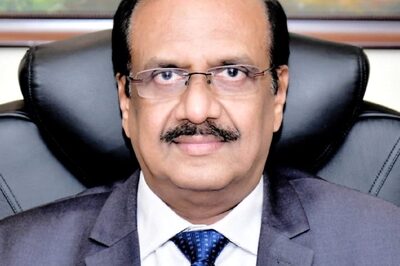
views
New Delhi: A nine-judge Constitution bench of the Supreme Court Thursday began deliberations on the legal issue of whether the top court can refer questions of law to a larger bench while exercising its review jurisdiction.
This question arose during the hearing in the Sabarimala case which relates to gender discrimination against women at religious places. A bench headed by Chief Justice S A Bobde is hearing the issues relating to discriminations against women at various places of worship including the Sabarimala temple.
Solicitor General Tushar Mehta argued that the apex court was right in referring the questions of law to the larger bench and added, "as custodian of fundamental rights, it was the duty of the court to lay down an authoritative pronouncement on these questions of law".
"Your Lordships are duty bound as custodians for posterity. Issues regarding review, reference, curative, these cannot be gone into. If there is a question of law, the court has the liberty to constitute a larger bench to settle the issues," Mehta said.
The other members of the bench are Justices R Banumathi, Ashok Bhushan, L Nageswara Rao, M M Shantanagoudar, S A Nazeer, R Subhash Reddy, B R Gavai and Surya Kant. Many senior lawyers including Fali S Nariman, Kapil Sibal, Shyam Divan, Rajeev Dhavan and Rakesh Dwivedi argued on February 3 that while exercising review jurisdiction, the Supreme Court does not have the power to refer a question of law to a larger bench.
They said last year's November 14 verdict of a five-judge bench, headed by the then CJI Justice Rajan Gogoi, was wrong in making a reference of broad contours while deciding the review petition against the 2018 judgement which allowed women of all age groups to enter Kerala's Sabarimala temple.
Besides Sabarimala, last year's verdict had also referred issues of entry of Muslim women into mosques and dargahs and of Parsi women, married to non-Parsi men, being barred from the holy fire place of an agyari, to the larger bench.
The senior lawyers had assailed as "erroneous" the reference made to a larger bench by the five-judge bench on questions related to gender discrimination against women in religious places while dealing with the Sabarimala case.
The top court had said it will frame the legal issues to be adjudicated by a nine-judge Constitution bench on religious discrimination against women at various religious places. The Constitution bench said it will inform the parties about the time frame for the hearing and would commence the proceedings by next week. The apex court had said that as of now it would go by the reference order of November 14 last year, made by a five-judge bench.
By a 3:2 majority, it said the larger bench will have to evolve a judicial policy to do "substantial and complete justice" in matters of freedom of religion, such as restrictions on the entry of Muslim and Parsi women into their respective places of worship.
It had taken note of vehement opposition by the senior lawyers who claimed that the apex court was wrong in making a reference of broad contours while deciding the review petition against the 2018 verdict.
The top court had said it would deal with the legal issue, raised by the senior lawyers, of whether a reference order can be made in review jurisdiction for a hearing by a larger bench.
Sibal, appearing for the All Indian Muslim Personal Board (AIMPLB), had said though the Board has clarified that Muslim women are allowed to enter mosques to offer Namaz, the court should not enter into matters of faith and decide essential religious practices while entertaining a PIL filed by a person not belonging to a particular faith. Mehta had referred to the Supreme Court Rules and said the court can undertake a larger debate "on the contours of Articles 25, 26 (fundamental right to religion)".
Mehta, senior advocates K Parasaran and Ranjit Kumar had said the top court while exercising the review jurisdiction can refer a larger issue, which has arisen during the adjudication of the dispute, to a larger bench.
A five-judge bench, by a majority of 3:2 on November 14 last year, had referred to a larger bench the issue of discrimination against women at various religions' places of worship.
A majority verdict by the then Chief Justice Ranjan Gogoi and Justices A M Khanwilkar and Indu Malhotra decided to keep the pleas seeking a review of its decision regarding entry of women into the shrine pending and said restrictions on women at religious places were not limited to Sabarimala alone and were prevalent in other religions also.
By a 4:1 majority verdict, the apex court had lifted the ban that prevented women and girls between the age of 10 and 50 years from entering the famous Ayyappa shrine in Sabarimala and held that the centuries-old Hindu religious practice was illegal and unconstitutional.




















Comments
0 comment